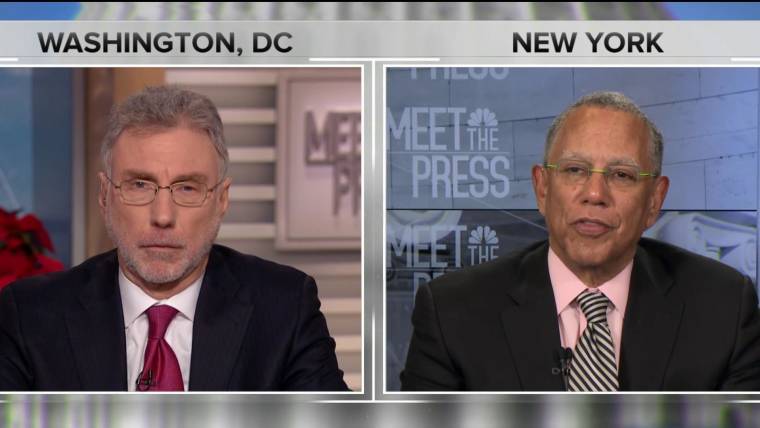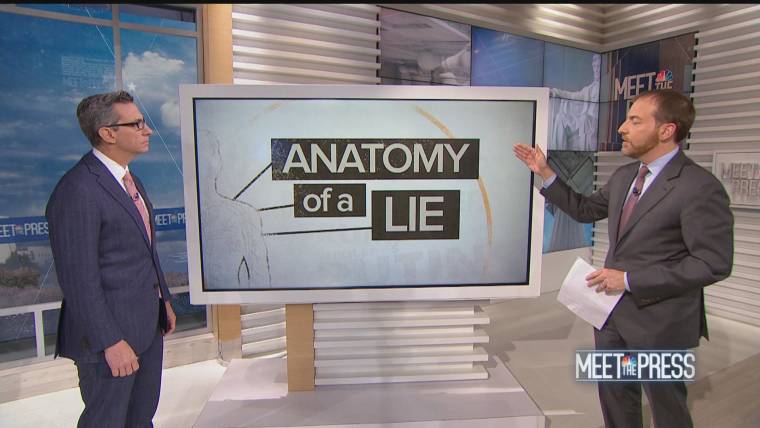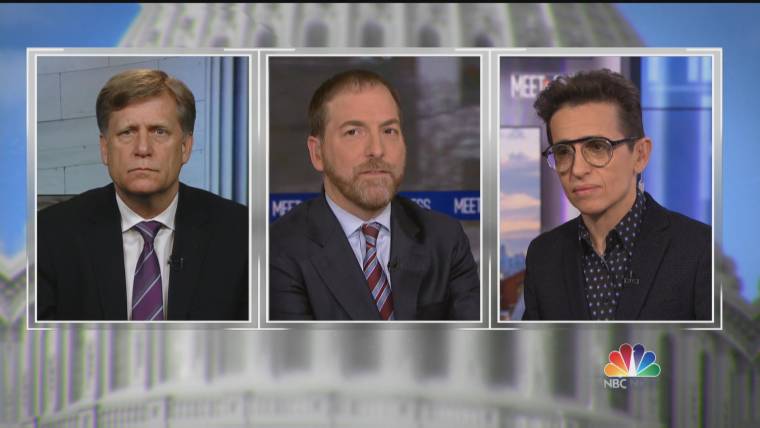WASHINGTON — In an era of politics and journalism that includes “fake news” and disinformation campaigns, it can be difficult to separate the truth from fiction.
That was the topic of Sunday’s special edition of “Meet the Press” — “Alternative Facts: Inside the Weaponization of Disinformation.”
New York Times Executive Editor Dean Baquet and Washington Post Executive Editor Marty Baron joined the show to discuss the challenges facing their organizations in covering Washington and politics in 2019. Asked about the challenges in presenting accurate information when it comes to reporting, Baquet said it is “ridiculous to say” that “the truth isn’t truth.”
The job of journalism, Baquet said, is “to very aggressively sort out fact from fiction and to very aggressively work to make sure that people trust us and understand that that’s our job.”
Let our news meet your inbox. The news and stories that matters, delivered weekday mornings.
They also discussed the root of Americans’ distrust in the media and how to combat false information.
“We live in an environment where people are able to spread crazy conspiracy theories and absolute falsehoods and lies,” Baron said. “And that’s made possible by the internet and social media. And people are drawn to sources of information, so-called information, that confirms their preexisting points of view. And you know, that’s what’s contributing to this environment that we have today.”
“I’m not convinced that people want to be lied to,” Baquet added. “I think people want to be comforted. And I think bad politicians sometimes say comforting things to them. And our job is to jump into the breach and to jump into those conversations, to do the deep reporting, to say, ‘Look, I’m sorry. What I have to say may be uncomfortable. But that thing you just heard that made you feel good is a lie.’”
But Baron cautioned that many Americans continue to feel forgotten by journalists in Washington and New York City. “I don’t want to be dismissive of people who support the president,” he said. “I think they’re owed our respect. And they certainly have mine. But you know, they feel that the so-called elites in Washington have not paid attention to them, that they don’t understand their lives. They don’t understand their concerns. And they’re not being heard. And they feel that the president is actually listening to them and addressing their concerns.”
The special edition also examined how one small falsehood can spread to the highest levels. CrowdStrike is a California-based cybersecurity firm that was hired by the Democratic National Committee in 2016 to investigate the breach of its email system.
But President Trump “has since suggested that CrowdStrike is a Ukrainian-owned company that has spirited this server to Ukraine,” NBC’s Chuck Todd noted, “all in the service of claiming that it was Ukraine, not Russia, that interfered in the 2016 election. The claim, itself, has no basis in fact.”
NBC News National Security Analyst Clint Watts walked through the path of how that false assertion became a matter of fact for the president and his allies, concluding that, “if you want to propel your lie, just keep issuing falsehoods. The truth has one voice, but lies are infinite. You can continue to make more and more lies, which then wears out anybody trying to rebut them.”
And former U.S. Ambassador to Russia Michael McFaul and journalist Masha Gessen joined the show to discuss how Russia has turned its state media into a megaphone for what Gessen called a “cacophony” of threads aimed at creating the feeling that “there’s no such thing as truth.”
Don’t miss the special edition of “Meet the Press,” click here to find the airtime in your area.














